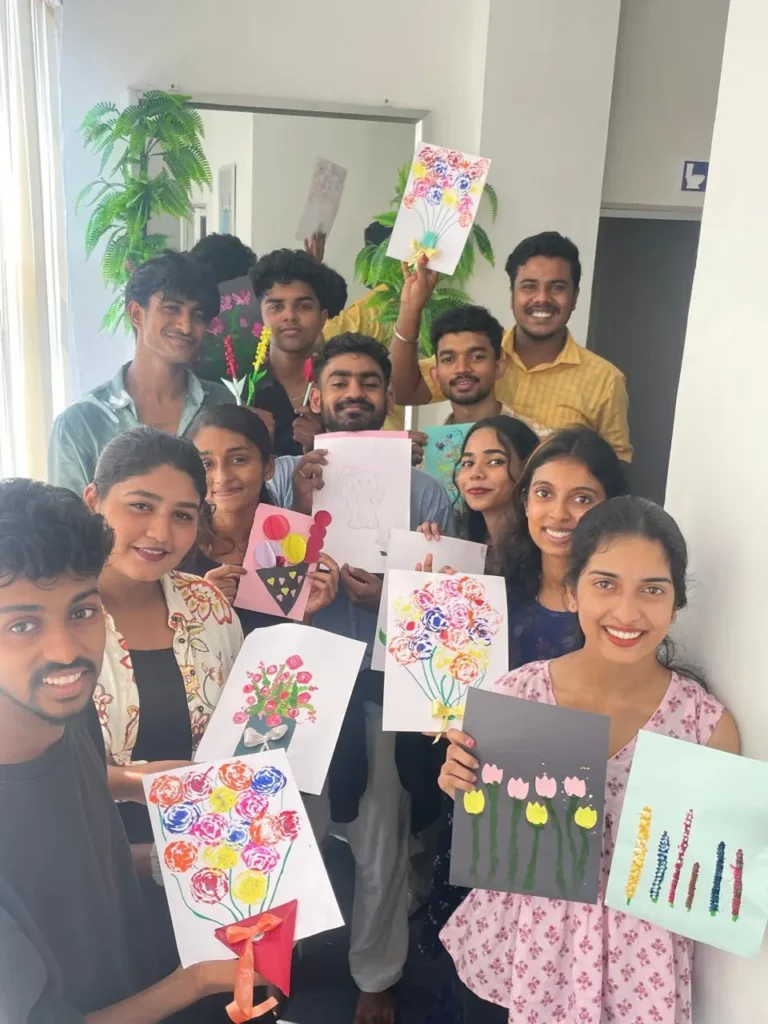The academy is designed to familiarize candidates with different aspects of Germany that are paramount to support easy communication and lifestyle in the country. We offer two well-constructed courses that will ensure excellent comprehensive skills in our candidates.
The Integration Course
The Orientation Course
Adept knowledge of the German language is the key to good social integration. Therefore, the course aims to make the candidates proficient in the job market, intellectual space, or any other social circle. If you think about the basic skills required for a pleasant stay in Germany, the foremost thing that strikes everyone is education and employment.
However, along with quality education and a well-paid job, one must be acquainted with the world of basic sustenance. This includes knowledge about how banks in Germany work, the best budget-friendly supermarkets, good schools in your locality, contacts for clinics/doctors near you, and most importantly a thorough awareness of the area of your residence. The integration course offers an array of life skills that checks all of these boxes.
There are various add-on benefits included in the course. Candidates are trained to draft e-mails in the proper format, make and attend phone calls professionally, search and apply for prospective jobs consistently and much more. You can be sure of meeting your interests and goals in the most efficient and productive way through our course. The Integration course will later be followed by an Orientation course.
Furthermore, the candidates do not only get a chance to familiarize themselves with important rules and regulations, but they also understand the working and renewals of various licenses and permits.The orientation course concludes with the final test, “Living in Germany” or LiD. You have the opportunity to choose from a wide variety of courses that best suit you while always counting on our best trainers and staff to assist you in every step of the course.
The master key to your success is an outstanding portfolio! We optimise the content of your Curriculum Vitae, Cover letter, and Motivation letter. We add suitable and apt keywords to highlight your skills and strengths while also enhancing the wording and terminology of the documents. To give your portfolio the perfect finish, we choose a well-designed layout that ensures a solid professional appearance.
All services at one view:
● Content creation of your curriculum vitae
● Content creation of your motivation letter
● Brief proofreading and top-notch document assessing
● Outstanding layout design of your portfolio to perform the practical part of your training
Finding the perfect job and fitting into your workplace can be a strenuous process. The competition in the job market is enormous and the requirements from employers can be exhaustive.
However, to make the whole application process convenient we will help you find a workplace on time by applying to companies on your behalf. Based on your criteria, we will find you a workplace that makes you feel comfortable.
We will optimise your portfolio to suit and meet the requirements of the hiring companies. We will ensure that you have all the needed documents to apply for the most suitable job.
Our services include:
Portfolio creation with all required documents

In addition to the courses, we conduct multiple workshops, seminars and conferences. Candidates avail themselves of immense benefits, tips, and skills by attending them consistently throughout the course. Candidates from different cultural backgrounds often face obstacles in terms of communication and exchange of ideas or perspectives.
They are at high risk of experiencing cultural shock, which may lead to frustration, a drop in self-esteem, confusion, and misunderstandings.
The workshops organized by GIL Institute boost confidence in candidates by improving awareness of intercultural differences, recognizing and accepting cultural peculiarities, and strengthening intercultural cooperation. Candidates are equipped with the necessary skills and strategies to enter the business world and job market. At the end of the course, candidates are sufficiently independent to face challenges, deal with misunderstandings and be highly fluent in communication.
The biggest perk of joining GIL Institute is the Model of Cultural Dimensions presented by Geert Hofstede. Cultural dimensions of intercultural research comprise various approaches that are widespread to deal with the classification of cultural differences. Geert Hofstede was a pioneer in the field of intercultural learning. In the late 1960s, he developed the model of cultural dimensions based on a factor analysis based on a study with more than 110,000 IBM employees.
The study helped him determine the significance of four main dimensions—power/distance, collectivism/individualism, masculinity/femininity, and avoidance of insecurity. Later, a fifth dimension was adapted, which is the long-term /short-term orientation. In 2010, Hofstede published the book Cultures and Organizations – Software of the Mind: Intercultural Cooperation and Its Importance for Survival, in which he introduced the sixth dimension, which is gender/restriction.
Privacy Policy / GIL-Institute / All Rights Reserved | WDS